How to Plan and Write an eBook For Sale
eBooks are a really great way to make money and build a following. Not only can you sell them on your own website, but you can get other people to promote them by offering them a commission.
Not only does this make both of you money, but it sends traffic to your website, helping to build a following. eBooks can be used to make yourself a lot of money, or as incentives for readers to join your mailing list. Whatever you do with them, it’s important to know how to write them.
How To Create an eBook to Sell
Planning
I’ve always stressed planning when it comes to writing content online, and writing for a book that you wish to sell is no different, in fact it requires a lot more careful consideration – you can’t just get started and hope for the best. The first thing you’ll want to do is to come up with a title, and although this may sound obvious, it actually has a big effect of how you write your book. My latest eBook is called “Site Traffic Domination – How To Get 100,000 Visitors in Your First 3 Months”, but it was originally just going to be a case study of my website. Soon after starting, I found it hard to find a focus and direction, so I came up with a much clearer title.
Once you’ve settled on a title, it then becomes a lot simpler to come up with what you want to write about. For me, I didn’t want to go into more than about five different sections as it’s a good number to work within and I could cover everything in enough details through subheadings. The headings which I chose all had ‘Section’ written in front, followed by a number and then a title. The titles were clearly laid out in the table of contents and they were ‘How I Got My Start’, ‘Where My Traffic Comes From’, ‘Content’, ‘Promoting Your Content’ and ‘Making Money’, followed by a final ‘Summary’ section, but we’ll get to that.
I’ve studied my posts in the past to find out which were the most popular (something which I recommend you do), and I found that aside from the top lists, my post popular posts were the ones that would cover the basics and break them down into small and easy to manage sections. Because I structured the eBook the way I have, it’s clearly a lot easier for people to understand and to track their progress. With all my heading laid out, I knew what I want to include under those headings, so all I had to do is write it all down on a piece of paper and get to work. I always plan on paper, and I’ve filled up many notepads in doing so, but it’s much better as you have something to look back on and you can quickly write down new ideas so that you don’t forget them.
What To Write & How To Write It
The main differences between something that I write on this website, and something I include in an eBook comes down to the length and quality. If you’re expecting someone to pay for what you’re writing about, when usually, they get it for free, you have to make sure that your content is up to scratch or they won’t be coming back for more. When I’m writing an eBook, I forget the word targets that I usually try to set myself and just write the best that I can over all the sections and subheadings that I’ve laid out in my plan. My latest eBook is 39 pages long including the contents, but after my first draft it was only 25 pages long. This is because I went back and added more that I had thought up as I was going along and tried to improve on what I’d already written. Remember, if you want to make a living off the Internet, you need repeat customers who are satisfied with your content.
Most importantly, you should try to set yourself apart from all the other writing on the Internet by writing better than anyone else. If your content is the best that the customer can buy, the more likely they will be to buy it, and the more referrals you’ll make from other sellers. Your first eBook may not make a lot of money to begin with, but as your following and reputation grows, the sales of older books will start to pick up, similar to how old posts full of Amazon Associates links still makes you money.
Whatever you choose to write about, make sure that you choose something that couldn’t be covered in a couple thousand words in a blog post. Take a complete overview of a subject and explore as many different elements as you can. The fact of the matter is that you could possibly break all of this down into a series of blog posts, but you won’t earn nearly as much money from that. My next book is going to be on night photography, and I’ve started to explore some ideas that I’ve come up with that I don’t think have been covered in detail before, meaning that I can offer something a little bit different to my competitors.
Content
Let’s start at the beginning. You always want to include an introduction to your subject, as well as a few personal anecdotes. I try to include at least one anecdote about something that I’ve experienced in each section of the book and your first one should be in the introduction, telling people what makes you different from the rest. My eBook is based around my website and how it’s grown over the past few months, so I thought I’d share with readers how that came to be. This first section is entitled ‘How I Got My Start’ as shares what I did differently to other people in my niche, and explains to my reader why I’m qualified to be writing the book. Some people like to include a disclaimer at the beginning of their book telling the reader that it’s illegal to share, but I personally didn’t as I don’t think it go very far in stopping anyone from doing so.
To help stay ahead, include content which you wouldn’t ordinarily include, such as assignments, as well putting more time into graphs. For my blog posts, I usually use a screen capture of a Google Analytic page if I want to show my results, but for my eBook, I took some time, exported the results and made an original annotated diagram. This looks a lot better and makes the reader see the separation from website to book, which gives them a reason to pay more. Below is a comparison between the sorts of graph that I use online and the graph that I use in my eBook – the difference is clear.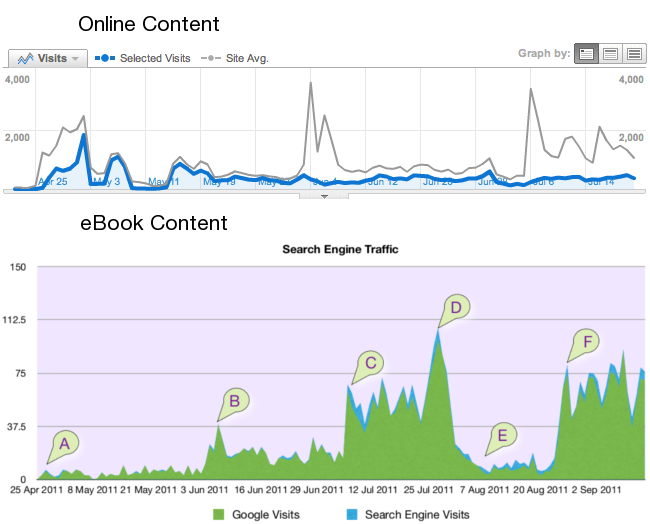
It is okay at times to include content that you’ve already shared on your blog, just so long as it’s relevant and not just being used to bulk up the book. If I do this, I tend to remove certain parts that aren’t entirely relevant as well as replace images which are no longer in keeping with my book. In my most recent book, I used ‘6 Types Of Blog Posts That Drive Traffic‘ but I took out the last two on the list as they weren’t as relevant to getting lots of traffic. Just because I’ve used it elsewhere, doesn’t mean that it’s not still really great information.
If you’ve done your planning properly then it should be no trouble to write all your content in order, covering all your key points. This also helps to keep the content organized and mapped out in a contents page. I used headings throughout my book to show importance and relevance, and then when you insert a table of content at the beginning, all of your titles come together in order. Have a look at part of my contents below, and you’ll see that because I was able to follow my plan in order and use headings to show their importance, I was able make my book much easier to follow. What’s more is that all of the headings in the contents page will link to the headings further down in the book, even after I turn it into a pdf.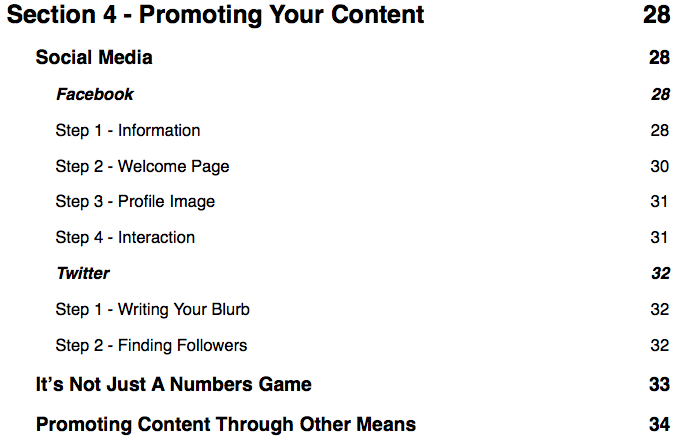
It’s one thing to write an eBook, but if you want to build on your reputation and sell many future ebooks then you need to start producing results. The best way to do this is to start writing assignments within your book that the reader has to follow, which in turn, will provide them with results. I wrote assignments such as ‘Open an Amazon Associates account and start using it today’ and ‘Claim your facebook profile name by getting 25 friends to like your page’. These little calls to action have a great effect and walk the reader through exactly what they have to do if they want to start seeing results.
Finishing Your eBook
When you’ve completed your book, it helps to read through it again so that it’s fresh in your memory and then summarize it so that anyone who was having trouble following will understand better. There is always going to be some readers that you have to spell it out for, so it can’t hurt to share it with everyone by creating an easy to read summary. I usually start with a couple paragraphs summarizing how I feel about what I’ve written and perhaps a personal anecdote about my learning process. Then what I do, which separates me from a lot of writers, is go back through my whole book and pick out all the important lessons that were learned and list them on one easy to read list. This really doesn’t take much time as I do it while I’m proof reading it; I just jot it down on a piece of paper and compile the list in order when I’m done.
I won’t share the list I’ve used in my latest eBook because that would just be giving it away for free, so instead, here’s a list for this blog post which you can learn from.
- eBooks are a great way to make money and can also be used as incentives to get people to join your list.
- Come up with a clear title before you start writing as it will shape the content that you produce.
- Properly structured eBooks are much easier to read.
- The quality and length has to be noticeably better than what you write online.
- Only sell content that you’re happy with because if you customer isn’t happy, they’re unlikely to ever buy from you again, and the same goes with affiliates.
- Anecdotes make the reader connect with you on a more personal level and trust the content more.
- A working table of contents is a great way to help the reader navigate their way through your book.
- Assignments act as calls to action, to help your reader produce the results they’re looking for.
- Summaries at the end will leave the reader feeling satisfied, knowing that they’ve learned something.
Finally, as you’re signing off, this is a great time to promote your own material to the readers, whether it’s links to your website and Facebook page, or links to other books that you’ve written that they might be interested in buying. If they’ve made it all the way to the end then they’re in a pretty good position to want to buy some more from you so don’t waste this opportunity.
"Do Not Write Another Blog Post Until You Watch This Free Video..."
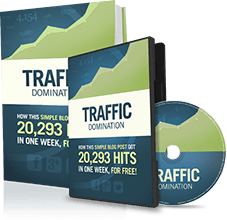
Watch this free video to learn...
- How I got over 10,000,000 people to visit my websites.
- The types of blog post that got me all that traffic.
- How to get someone else to do it for you!


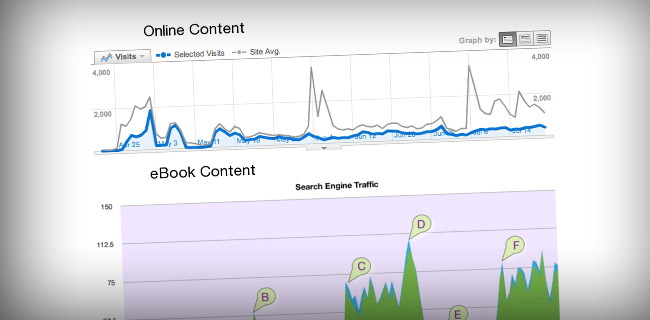
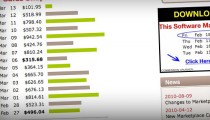
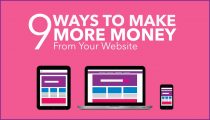

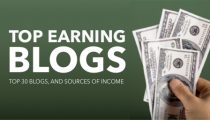
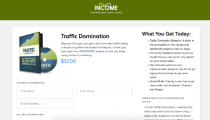
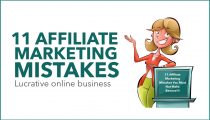
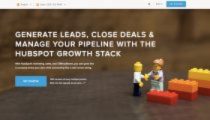

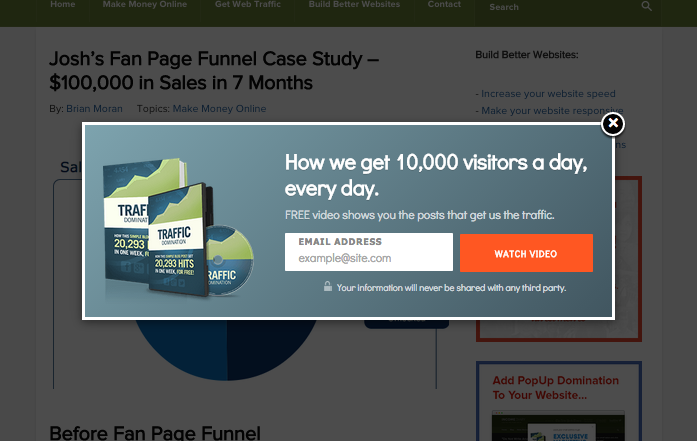
I have always wanted to write an ebook but wasn’t sure how to go about it, now I do! thanks
Duane
I really enjoyed this post. I am in the process of writing an ebook and this info came right on time.
Thanks a lot.
Thanks for these tips. In the midst of preparing to launch an ebook at the moment. I would love to hear more about the marketing side of things. Thanks again
This is a fantastic piece; it is very educative and intellectually stimulating. I have learnt some new tricks, especially that aspect which talks of assignments. It is an eye-opener.
Thank you Josh. BTW, is Michael your brother? Birds of the same beautiful feathers!
Man this post is really nice about writing a nice detailed guide. It even helps your write blogs better writing books can be a lot of fun.
I always write books as if what I would have liked to learn from someone else in the past. I think giving away your book for free can make you money as well.
It’s the trust you build with your visitor in the book that will make you even more money.
Most people think an ebook should be a whole lot of pages, but having a nice short ebook that gets to the point is better than an ebook that is just bubbling and boring you.
thanks
Jan Dirk Rabie
Thanks so much for your advice it’s come in the right time when I am in progress of posting an e-book but I had no idea how to do it.
Thanks again
Another issue if my blog is attracting an old post regarding a subject which I know barely but constantly google is driving audience to my site. Does it mean I should write an ebook about this subject and if I’m not good at it does that mean I should not write about it?
Never write about something you don’t know about, as your lack of knowledge will become clear, and you’ll lose any authoritative status that you may have. You’re lucky to be ranking in Google for such terms, but I would personally recommend looking for someone else to write the content for you.
This is a fantastic, comprehensive guide – thank you for taking the time to share your tips.
I was interested about choosing the title first as this is usually the last thing I do when writing a blog post. However I can see how choosing first helps to keep you focused.
I especially loved the idea of going that extra mile by annotating a simple google analytic and agree that readers love anecdotal stories. We love to hear about people, hence all the fly on the wall documentaries and it’s good to remember this when we write. Some of the most popular posts on my site have been about finding mouldy food in the back of my fridge; I guess *everyone* can relate!
Josh,
Absolutely great post. Am currently working on 2 ebooks now, but after reading this going back to beginning and making sure I’ve got content better organized and tip about adding summary at the end a good one.
Definitely a keeper article for anyone who planning on writing an ebook.
Thanks, Rick